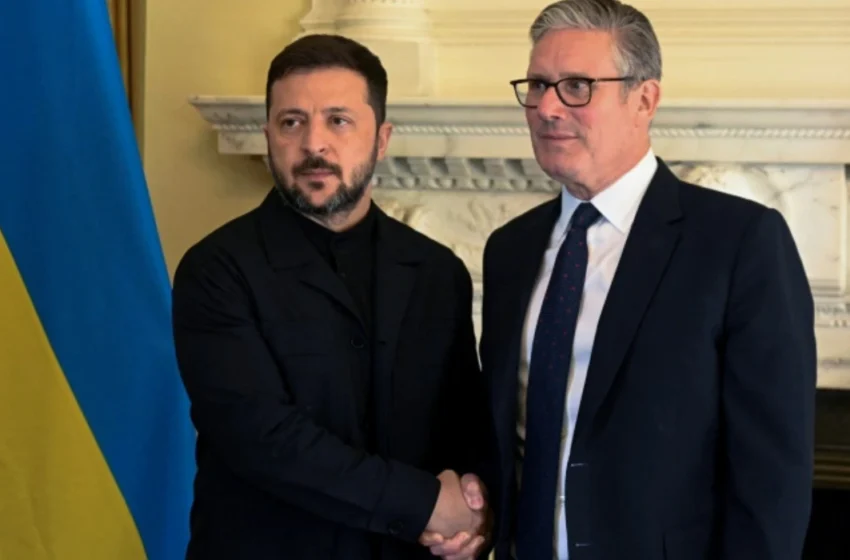
Ukraine crisis ( Europe Brief News): Ukrainian President Zelensky met UK PM Keir Starmer in London, agreeing to deepen defense ties and co-produce military equipment amid ongoing war efforts.
Zelensky had visited King Charles III at Windsor Castle before meeting with Starmer at his home on Downing Street.
Zelensky is scheduled to attend a NATO conference in The Hague, which coincides with the trip.
Starmer described the two countries’ “excellent bilateral meeting” and their agreement on an “industrial military co-production agreement” as “a massive step forward in the contribution that we can continue to make.” He was speaking to Ukrainian military soldiers who were training in the UK.
While no specifics were disclosed, Zelensky, speaking next to Starmer, emphasized that the agreement “will be very strong and will transform both nations.”
Starmer told the Ukrainian forces that their “level of professionalism, commitment, and bravery” was “really humbling.”
The worldwide alliance has now resulted in the training of almost 50,000 personnel.
According to Zelensky, the plan had allowed Ukraine to “survive and fight” and “strengthen our army.”
Since Russia’s invasion in early 2022, the UK has been one of Ukraine’s strongest allies, imposing rounds of sanctions on Moscow and providing numerous military aid packages.
In addition to helping place Ukraine in “the strongest possible position” to negotiate a ceasefire, Starmer pledged that the assistance will last “for the rest of the conflict.”
Zelensky said his country was “very thankful to the UK… for such big support of Ukraine from the very beginning of this war.”
The Ukrainian leader earlier traveled to Windsor Castle, where he “visited The King… and remained to luncheon,” Buckingham Palace said.
In the Hague on Tuesday and Wednesday, Zelensky is anticipated to attend the NATO conference, where Ukraine’s allies would try “to ensure that Ukraine is in the best possible position as we go into the next stage of this conflict,” Starmer said.
On the eve of the two-day meeting, Secretary General Mark Rutte stated that NATO countries are ready to make a “quantum leap” by increasing defense spending in order to combat the Russian threat.
The 32 nations of the alliance will promise to increase defense spending to 5% of GDP, which is a major demand of President Donald Trump, who has long complained that the US spends too much on NATO.
NATO’s members have thrashed out a compromise deal to dedicate at least 3.5 percent of GDP to core military needs by 2035, and 1.5 percent to broader security-related items like cyber-security and infrastructure.
“The defense investment plan that allies will agree on in The Hague introduces a new baseline, five percent of GDP to be invested in defense,”
Rutte told reporters at a pre-summit news conference.
“This is a quantum leap that is ambitious, historic and fundamental to securing our future.”
What might be the long-term impact of the UK-Ukraine military co-production deal?
Ukraine’s defense manufacturing capacity will be strengthened and tightly linked to the UK’s advanced defense sector by the agreement to exchange battlefield technology and co-produce military equipment, including increasing Ukraine’s drone production.
Ukraine’s armed forces will become more modern and self-sufficient in manufacturing vital military equipment as a result.
The pact expands upon the larger 100-year partnership agreement between the UK and Ukraine that was signed earlier in 2025 and pledges the two nations to long-term defense, security, and related cooperation.
In order to establish Ukraine as a major regional security actor and bolster deterrence against future attack, this includes the possible expansion of military infrastructure in Ukraine, cooperative weaponry manufacture, and quick response systems.


